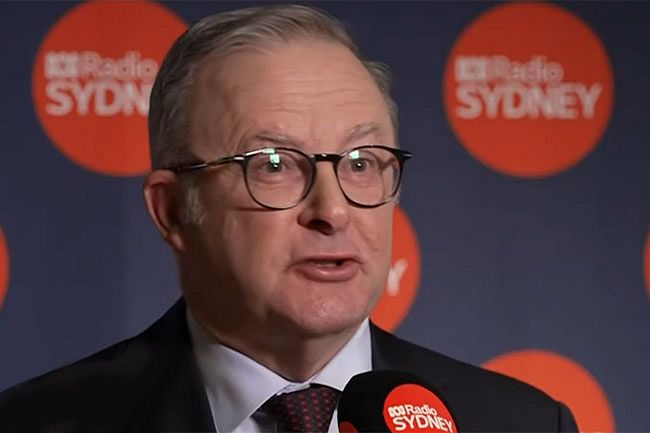Sufferers of hearing loss find the problem exacerbated by poor speech delivery, from ordinary Australians to those in top levels of parliament. Dean Frenkel writes.
AROUND 3.6 MILLION Australians are hearing-impaired. They face more difficult challenges in Australia partly because so many compatriots have impaired speech. They are too difficult to understand.
One out of six Australians with compromised hearing endure a high rate of lost audible information, exacerbated by poor Australian speech delivery.
People with hearing impairments are frequently confronted by circumstances, like crowded restaurants where they struggle to understand spoken words. They have to listen harder and accept that basic information comprehendable to others will be lost on them.
Imagine what this is like for them. A few missing words are understandable but large sections of unintelligible words corrupt the meaning. At best it is alienating; at worst it’s dangerous and leaves communication voids.
Effective speech requires a communication bridge. This bridge transfers information from the speaker to the listener who must be able to functionally decipher the words to understand them.
Calling out unclear speech is important because functionality is more important than ego.
Good speech is inclusive. Hearing-impaired people have a much better chance of understanding the spoken word when it is clear and audible. Clear speech is arguably a human right.
Deficient speech is widespread in Australia and disperses across class lines; an unaddressed problem that has now grown into a national impediment across generations. Even the hearing-perfect often have to ask people to repeat themselves. Unclear speech is more common than football, meat pies and kangaroos.
Indeed, Australian culture wears its communication deficit like a Bonds T-shirt, taking pride in dysfunctional speech. Where countries like France celebrate the intricacies and cadences of their spoken language, Australians butcher their speech for fun.
The Australian speech signature is full of blurred speech, incomplete articulations, slurring, speaking too fast or in a slow monotone, with generalised rather than descriptive words, shortened and mispronounced words, abbreviations and mumblings.
Speech deficiencies are common among builders, plumbers, teachers and actors, and equally common among doctors, politicians, executives and judges.
The late Professor George Hampel noticed this and was motivated to establish the Australian Advocacy Institute in 1991 to lift speech skills and advocacy standards in the law. These days prospective barristers have to pass an advocacy exam to get their licence to enter The Bar.
Indeed, Professor Hampel’s inspiration hasn’t spread to the vocations of medicine, police, pilots, air traffic controllers, engineers and scientists. It is imperative that these professions and others develop a culture of clear speech and excellent communication.
Pilots and air traffic controllers need clear speech skills and competent hearing so they can give and take direction, and accurately communicate during emergencies. Lives depend on it. Doctors need to be capable of delivering cogent expression, clear speech and maintaining good hearing for the same reasons. Speech competence and good hearing are important for many jobs and fundamental for others.
A decade ago, I called for initiatives to raise Australian speech standards but unfortunately, standards have declined and skills may even be devolving.
There are newsreaders with speech impediments. Diversity is the standard excuse for lower speech standards, especially at the ABC. On film and TV, subtitles that once helped us to understand foreign movies are now needed to understand American and Australian programs because too many actors are now incoherent.
Businesses are happy to use people with unacceptably poor speech skills to answer phones and deal with the public. This is unfair to both employees and customers who are forced to liaise on a shaky communication tightrope rather than a solid bridge.
This is contributing to customer rage. Have you noticed the posters beckoning customers to be nice to workers?
And while it was noted ten years ago that the speech skills of our politicians are the worst in the English-speaking world, they’ve deteriorated even further with the departure of more competent speakers like Julie Bishop.
Our Prime Minister speaks like he’s sobering up. He struggles to be coherent and mocks those with Tourette’s Syndrome. Other overseas politicians who speak English as a second language, like Imran Khan and Benjamin Netanyahu, speak better than most of our native politicians.
The best speakers of the current mob are Environment Minister Tanya Plibersek and Senator Simon Birmingham from the major parties, and Allegra Spender from The Teals.
Senator Jacqui Lambie is not a classical speaker but an outstanding advocate who speaks with passion. Tonally, her speeches are one dimensional but her persuasive abilities stand out.
At the very least, parliamentarians should be required to undergo speech training and pass an exam, just like barristers, before they become public representatives. They are, after all, the elected advocates for the people and as a matter of respect, they owe speech clarity to their electorate.
But most of all, they owe it to millions of Australians with impaired hearing who can’t understand them. They need to bring inclusivity to the table so that hearing-impaired people can join the conversation.
Dean Frenkel is a writer and communications consultant, lectured in Public Speaking and Communications at Victoria University, worked with politicians and written extensively for newspapers.
Support independent journalism Subscribe to IA.





